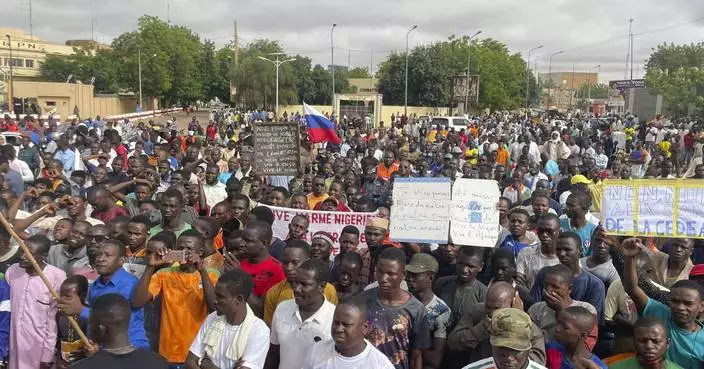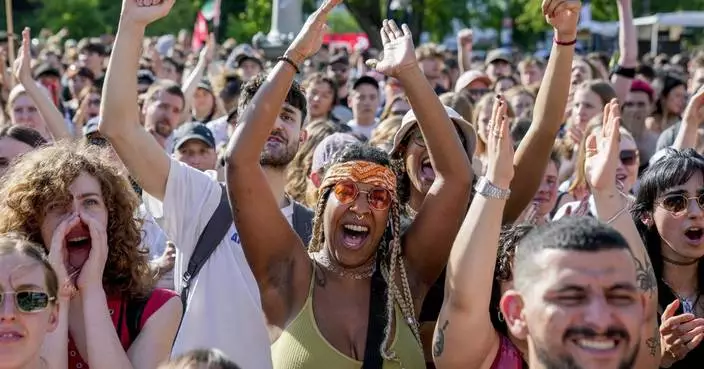Nik Wallenda says he "freaked" out for a second when his balancing pole slipped during a high-wire walk with his sister above New York's Times Square.
Nik and Lijana (lee-AH'-nuh) Wallenda spoke Monday on ABC's "Good Morning America."
Click to Gallery
Nik Wallenda says he "freaked" out for a second when his balancing pole slipped during a high-wire walk with his sister above New York's Times Square.
Lijana Wallenda joined him Sunday night for the first time since having a near-fatal fall in 2017.
Now, Nik Wallenda says he's got his eye on an "active volcano."
Aerialist Nik Wallenda walks on a high wire above Times Square, Sunday, June 23, 2019, in New York. (AP PhotoJason Szenes)
Aerialists Nik Wallenda, left, and his sister Lijana pose before a news conference after their high wire walk above Times Square, Sunday, June 23, 2019, in New York. (AP PhotoJason Szenes)
Aerialists Nik Wallenda, left, and his sister Lijana talk to the media during a news conference after their high wire walk above Times Square, Sunday, June 23, 2019, in New York. (AP PhotoJason Szenes)
Aerialists Nik Wallenda, left, and his sister Lijana talk to the media during a news conference after their high wire walk above Times Square, Sunday, June 23, 2019, in New York. (AP PhotoJason Szenes)
Nik Wallenda said the scare occurred as his sister knelt so he could step over her while they crossed paths 25 stories above the pavement.
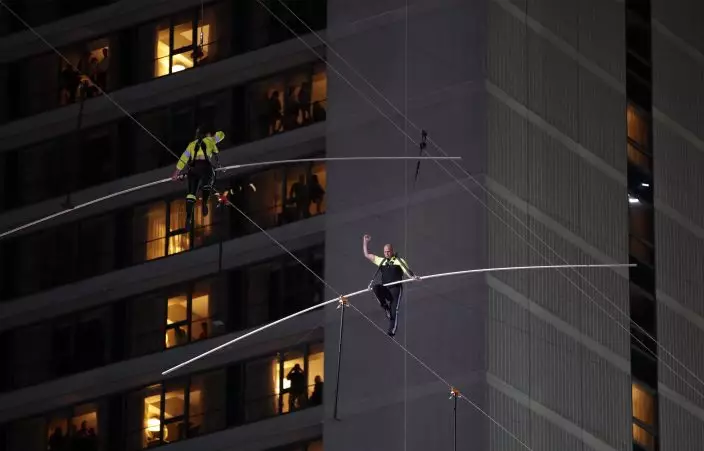
Aerialists Nik Wallenda, right, and his sister Lijana walk on a high wire above Times Square, Sunday, June 23, 2019, in New York. (AP PhotoJason Szenes)
Lijana Wallenda joined him Sunday night for the first time since having a near-fatal fall in 2017.
She concedes that she initially felt "a little shaky in the legs." But she quickly achieved a "peaceful" feeling on the wire.
The Wallendas hope to inspire others to conquer their own fears.
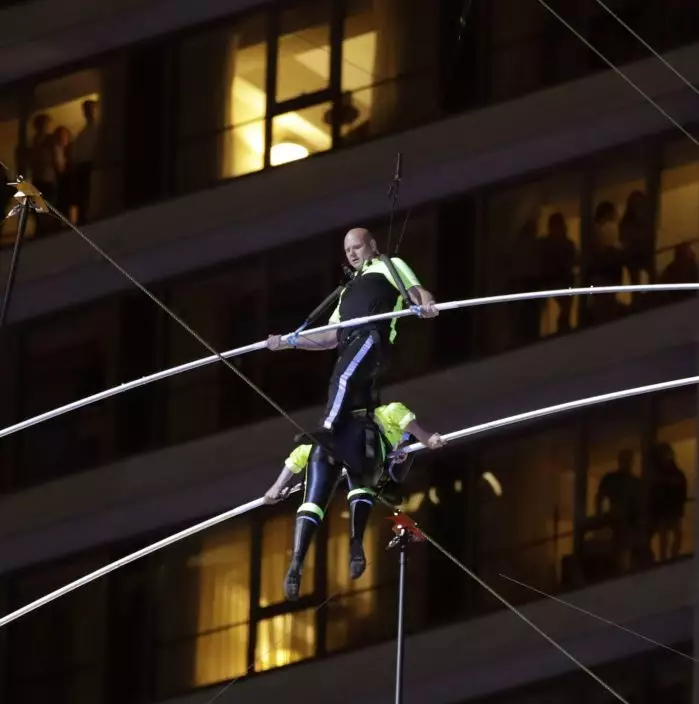
Aerialists Nik Wallenda, top, steps over his sister Lijana as they walk on a high wire above Times Square, Sunday, June 23, 2019, in New York. (AP PhotoJason Szenes)
Now, Nik Wallenda says he's got his eye on an "active volcano."
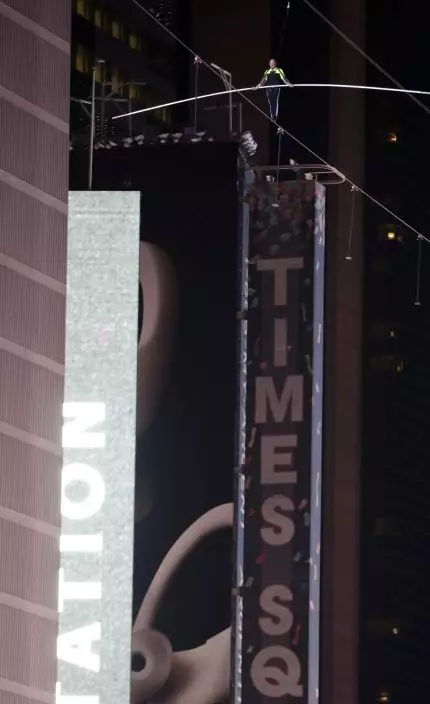
Aerialist Nik Wallenda walks on a high wire above Times Square, Sunday, June 23, 2019, in New York. (AP PhotoJason Szenes)
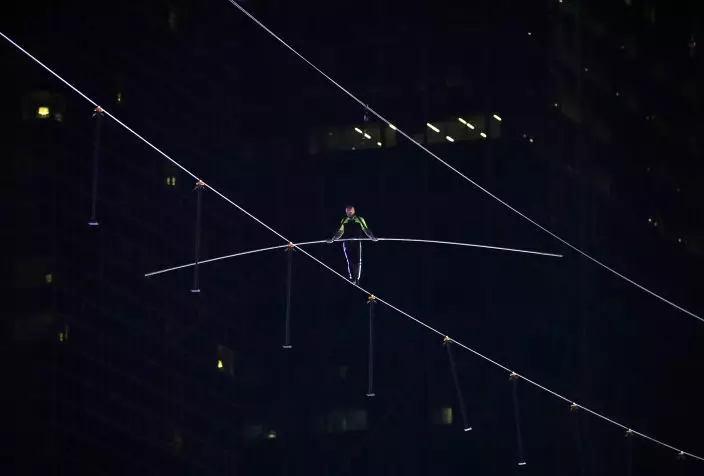
Aerialist Nik Wallenda walks on a high wire above Times Square, Sunday, June 23, 2019, in New York. (AP PhotoJason Szenes)

Aerialists Nik Wallenda, left, and his sister Lijana pose before a news conference after their high wire walk above Times Square, Sunday, June 23, 2019, in New York. (AP PhotoJason Szenes)

Aerialists Nik Wallenda, left, and his sister Lijana talk to the media during a news conference after their high wire walk above Times Square, Sunday, June 23, 2019, in New York. (AP PhotoJason Szenes)
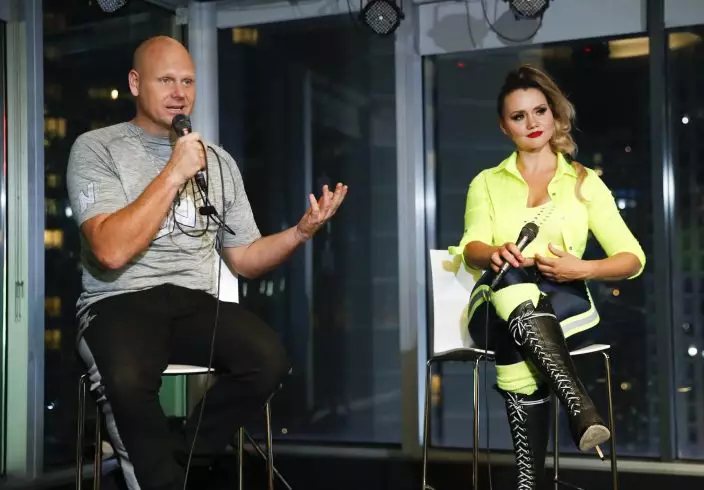
Aerialists Nik Wallenda, left, and his sister Lijana talk to the media during a news conference after their high wire walk above Times Square, Sunday, June 23, 2019, in New York. (AP PhotoJason Szenes)
BEIRUT (AP) — The United States has repatriated 11 of its citizens from sprawling camps in northeastern Syria that house tens of thousands of family members of suspected Islamic State militants, the U.S. State Department said Tuesday.
The repatriation was the largest Washington has carried out from the camps to date, U.S. Secretary of State Antony Blinken said in a statement. Five of the 11 citizens brought back were children, and one non-U.S. citizen child -- the 9-year-old sibling of one of the other children -- was also brought with them.
As part of the same operation, the U.S. facilitated the repatriation of 11 other camp residents, eight of them children, to Canada, the Netherlands and Finland, the statement said.
Although the pace of repatriations has picked up -- neighboring Iraq recently returned hundreds of its citizens -- many countries remain reluctant to bring back citizens from the al Hol and al Roj camps, which now hold about 30,000 people from more than 60 countries, most of them children.
The camps are run by local authorities affiliated with the U.S.-backed, Kurdish-led Syrian Democratic Forces. The SDF and its allies, including U.S.-led coalition forces, defeated the Islamic State group in Syria in 2019, ending its self-proclaimed Islamic “caliphate” that had ruled over a large swath of territory straddling Iraq and Syria.
Human rights groups have regularly reported on what they describe as inhumane living conditions and abuses in the camps and in detention centers where suspected IS members are housed.
“The only durable solution to the humanitarian and security crisis” in the facilities “is for countries to repatriate, rehabilitate, reintegrate, and where appropriate, ensure accountability for wrongdoing,” Blinken said in the statement.
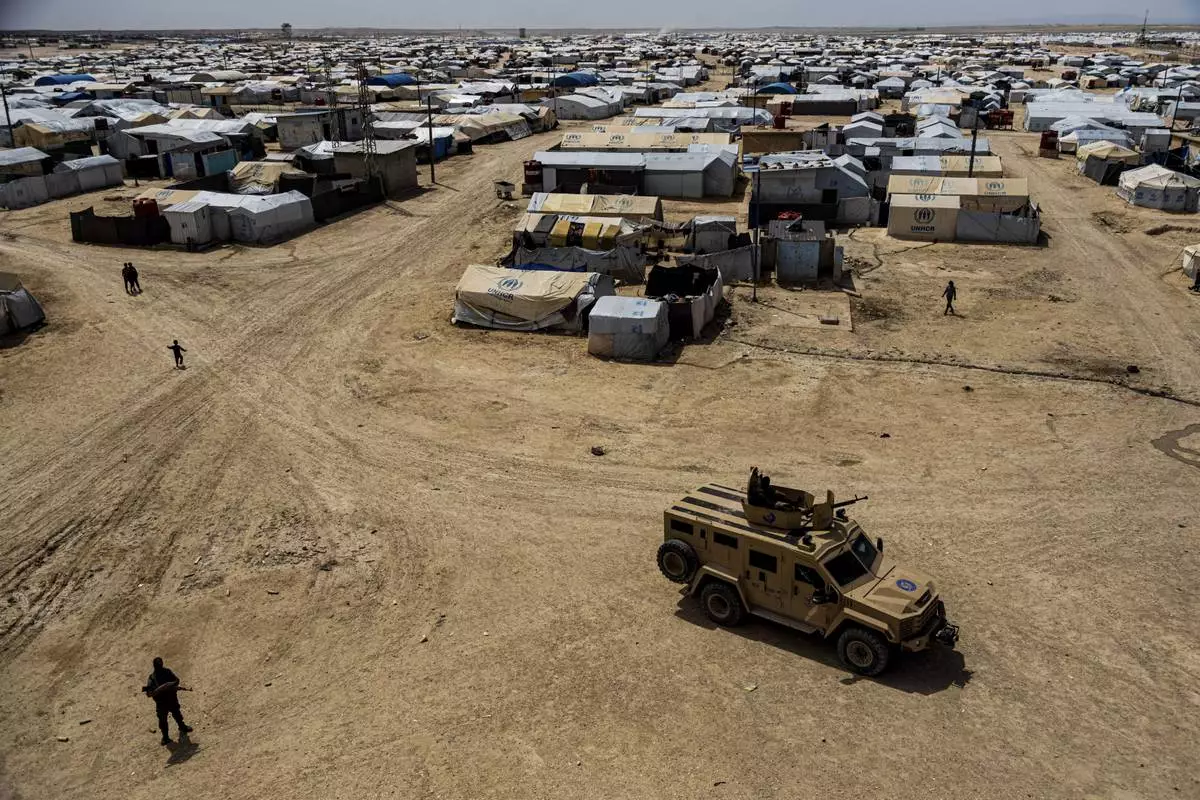
FILE - Kurdish forces patrol al-Hol camp, which houses families of members of the Islamic State group in Hasakeh province, Syria, on April 19, 2023. The United States has repatriated 11 of its citizens from sprawling camps in northeastern Syria that house tens of thousands of family members of suspected Islamic State militants, the U.S. State Department said Tuesday May 7, 2024. (AP Photo/Baderkhan Ahmad, File)
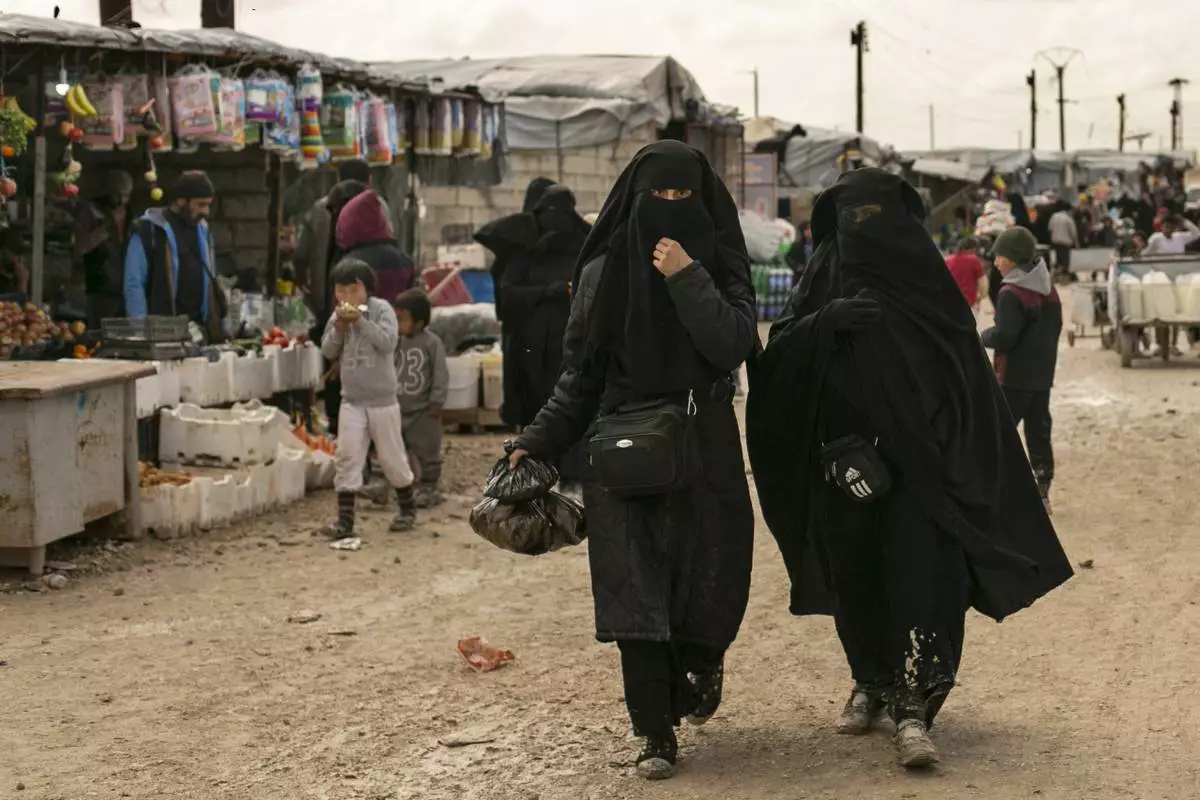
FILE - Women shop in the marketplace at al-Hol camp, home to families of Islamic State fighters, in Hasakeh province, Syria, on March 31, 2019. The United States has repatriated 11 of its citizens from sprawling camps in northeastern Syria that house tens of thousands of family members of suspected Islamic State militants, the U.S. State Department said Tuesday May 7, 2024. (AP Photo/Maya Alleruzzo, File)
















